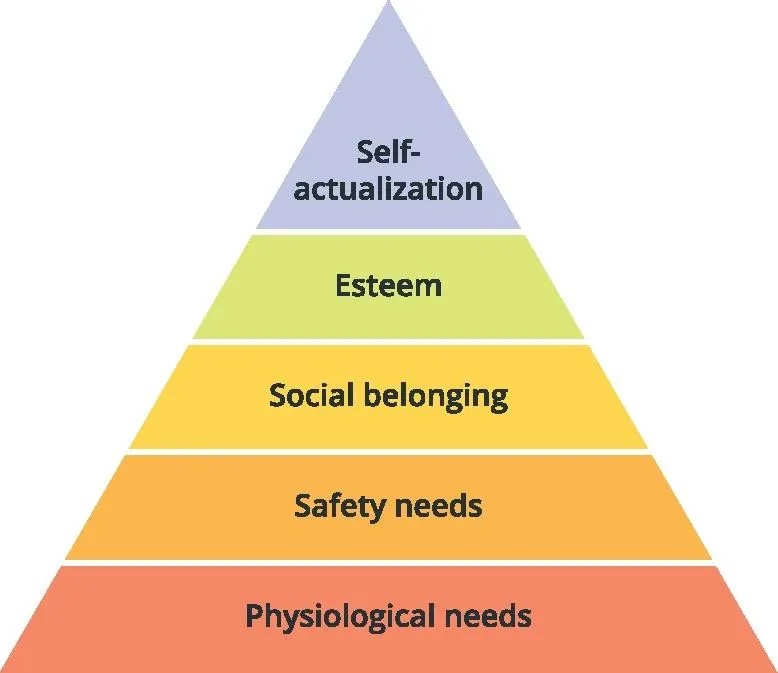The heated debate surrounding health insurance affordability in the U.S. isn’t just another political tug-of-war; it taps into a fundamental human need that transcends partisan lines. To grasp this urgency, we need to look beyond the policy jargon and consider its profound psychological impact.
Maslow’s Hierarchy of Needs famously places safety as a primary motivator after fulfilling basic biological necessities like food, water, and shelter. In this context, health insurance becomes more than just a financial arrangement; it acts as a critical shield against unforeseen illness and catastrophic medical expenses. A barbershop owner in Austin who battled brain cancer succinctly captured this sentiment when he told KFF Health News that his Affordable Care Act Marketplace coverage “saved my ass.” This starkly honest appraisal likely resonates with anyone who has faced the fear and financial strain of health issues.
It’s no coincidence that Democrats, strategizing for maximum political impact, labeled their healthcare reform legislation the “Patient Protection and Affordable Care Act,” while Republicans, in a tactic equally calculated, adopted the dismissive label “Obamacare.” This underscores the deep-seated emotional connection between affordable healthcare and personal security. The very language used reveals how deeply this issue penetrates our sense of well-being.
The Stakes Are High: Tax Credits on Thin Ice
Currently, enhanced ACA tax credits are set to expire at year’s end, leaving over 20 million Americans vulnerable to soaring health insurance costs. The Center on Budget and Policy Priorities warns that without these subsidies, premium prices will more than double on average for those who rely on them. This looming crisis is already manifesting in the marketplace; pre-election research by Forbes found widespread increases of 20-25% across major insurers, with some experiencing even higher spikes – premiums doubling or quadrupling in certain cases.
Despite this imminent threat, a KFF Health Tracking Poll conducted just before the midterm elections revealed that three-quarters of Americans, including nearly half of Republicans, believe Congress should extend these vital subsidies. The overwhelming bipartisan support underlines the public’s intuitive understanding: affordable healthcare is essential for personal safety and security.
Political Gridlock Amidst Public Concern
This public consensus clashes directly with the intransigence displayed by some Republican leaders. While Senate Majority Leader John Thune (R-SD) agreed to a vote on extending the subsidies as part of a government funding deal, House Speaker Mike Johnson (R-TX) has shown no such inclination, mirroring President Trump’s own opposition.
The former president, echoing an oft-repeated proposal, suggested diverting ACA funds away from “money sucking Insurance Companies” and directly into individual consumers’ pockets to buy insurance. However, this idea overlooks the fundamental principles of risk pooling that underpin health insurance. It would likely lead to significantly higher premiums for those with pre-existing conditions, effectively excluding them from affordable coverage altogether. The Center for Economic and Policy Research has meticulously debunked this flawed premise, highlighting its impracticality. Moreover, even if the current ACA funding were redistributed as proposed checks, they would only amount to $170 per month – a pittance compared to the average 2024 premium of $540 per month on the ACA marketplace.
Beyond Politics: The Proven Impact of Insurance on Mortality
Adding another layer of complexity is the enduring debate over whether health insurance directly impacts mortality rates. This question has baffled researchers for years, with early studies failing to establish a clear link. However, recent research published in The Washington Post sheds new light on this issue. It suggests that health insurance demonstrably reduces mortality, particularly among adults over 45 and to a lesser extent, younger individuals.
These findings gain even greater significance when we consider the CDC’s sobering revelation: a staggering percentage of Americans suffer from chronic conditions—6 in 10 young adults, 8 in 10 midlife adults, and 9 in 10 older adults—many of which are major contributors to death and disability.
Safety Net or Lifeline? The Urgency of the Moment
The intense focus on health insurance affordability amidst looming subsidy expiration underscores a crucial point: access to affordable healthcare transcends partisan divides. It taps into our deeply ingrained need for safety and security, especially in the face of chronic illness.
Simply put, discussing healthcare reform solely as a budgetary or political maneuver ignores its profound impact on individual well-being. Affordable health insurance isn’t just about navigating complex policy debates; it’s a fundamental lifeline that empowers individuals to pursue better health outcomes, ensuring they can prioritize care over the constant dread of financial ruin when illness strikes. The stakes are high; the time for action is now.
